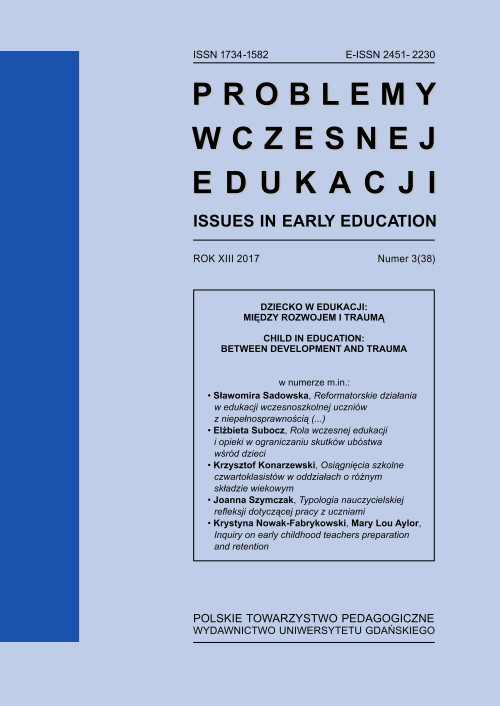Dyskurs podręcznikowy a dyskurs dziecięcy – odmienne postrzeganie rzeczywistości
DOI:
https://doi.org/10.26881/pwe.2017.38.10Słowa kluczowe:
podręcznik, dyskurs dziecięcy, dyskurs podręcznikowy, konwergencyjność zadań, myślenie odtwórcze, zniewolenieAbstrakt
Textbooks have become a source of assistance that settled for good into Polish education landscape, a measure without which many adults cannot imagine the school reality. At the same time, the lack of the comprehensive studies on education packs is noticeable. What is more, the voice of children in Poland is marginalized or completely ignored, as opposed to the Western countries. The perspective of the youngest participants of the education process, who are the direct recipients of the textbook offer and are critical and thoughtful, is very rarely taken into account. Whereas their opinions may be a source of very powerful changes in education.
This article presents my own research results. The topic of undertaken study was the analysis of the most popular education packs for classes 1–3. The gathered data was enriched with third-grade students’ opinions about the tasks from the education packs and a description of their experiences related to the usage of those textbooks in school.
The study was conducted with a qualitative approach. As the study techniques, a documentary analysis and focus interviews (enriched with textbook tasks designed by children) were used. As resulting from the study, the textbook discourse is not a children’s discourse. Authors of these textbooks tend to forget about the real needs and capabilities of children. Students appeal for taking into account their high potential and putting into the textbooks subjects and tasks fitted to their development level, allowing them to take creative and divergent actions.

 Uniwersyteckie Czasopisma Naukowe
Uniwersyteckie Czasopisma Naukowe





